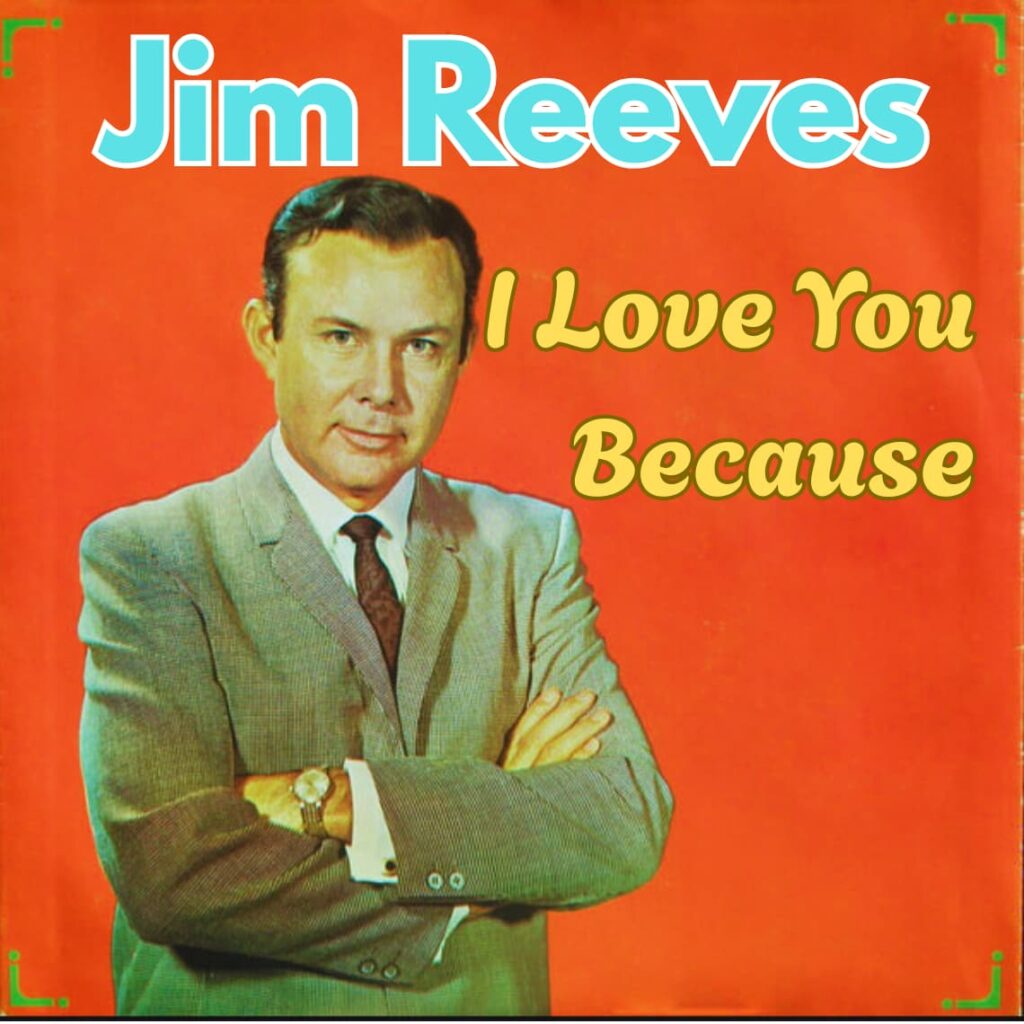
An Enduring Testament to Unconditional Love
There are some songs that, no matter how many years pass, never lose their luster. They become a part of the soundtrack to our lives, a melody woven into the fabric of our most cherished memories. For many, Jim Reeves‘s rendition of “I Love You Because” is one such song. It’s a tune that carries with it the warmth of a bygone era, a time when a simple, sincere expression of love was all that was needed to capture a heart.
The story of this classic starts not with Reeves, but with another country music legend, Leon Payne. He wrote and recorded the song in 1949, and it became his sole country chart hit, reaching the number four spot. However, it was the smooth, velvety baritone of “Gentleman Jim” that transformed it into a global phenomenon. Jim Reeves‘s version was recorded in 1963 for his album Gentleman Jim, a fitting title for a man whose polished style and gentle demeanor set him apart. While other versions existed—notably Al Martino’s—it was Reeves’s interpretation that truly resonated. Released as a single in 1964, the song found its biggest audience not in the United States, but across the Atlantic. It peaked at an impressive number five on the UK Official Singles Chart and spent a remarkable 39 weeks on the chart. In Norway, it became his most successful single, holding the top spot on the VG-Lista chart for an incredible 13 weeks. This success was a testament to the song’s universal message and Reeves’s unique ability to transcend genres and borders.
The enduring meaning of “I Love You Because” lies in its simple, yet profound, message. It’s not a song about loving someone for what they do for you, but for who they are. The lyrics speak of a love that is a constant, a safe harbor in a turbulent world. “I love you because you understand, dear, every single thing I try to do,” Reeves croons, his voice as comforting as a familiar embrace. It’s an appreciation for a partner’s unwavering support, a love that doesn’t waver in the face of judgment. “No matter what the world may say about me, I know your love will always see me through.” The song acknowledges the imperfections of life and the speaker, but finds love not despite them, but because of them. The chorus, “But most of all I love you ’cause you’re you,” is the heart of the matter. It’s a tribute to a person’s intrinsic self, a celebration of their very being.
For those of us who grew up with this song, it’s a portal to a different time. It takes us back to slow dances in dimly lit halls, to the quiet moments spent with a loved one, or to the simple, profound joy of hearing a melody that perfectly articulated the feelings in our hearts. It was the kind of song you’d hear on a crackling radio, a gentle serenade that promised a love as steady and true as the rhythm itself. The sophisticated arrangements, complete with the elegant touch of the Anita Kerr Singers, and the masterful production by Chet Atkins, gave the song an air of timeless sophistication. It was a beautiful example of the “Nashville sound,” a genre that blended traditional country with pop sensibilities, and Jim Reeves was its ultimate gentleman ambassador. Listening to it now, you can almost feel the gentle breeze of a summer evening, a reminder of a time when romance was less about grand gestures and more about quiet, heartfelt declarations. It is a song that doesn’t just ask us to remember a love, but to feel it all over again, with every note and every word.